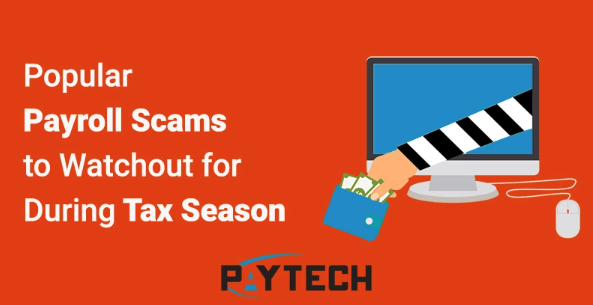
Tax season is stressful for everyone. But if you work in payroll, human resources (HR) or are a small business owner, it is especially stressful. And the last thing you want to deal with is the chaos that ensues after getting duped by payroll scams. Unfortunately, this time of year scammers are primed to take advantage of the perfect storm created by tax season.
The Internal Revenue Service (IRS) has recently warned companies of an email phishing scheme that targets organization payroll and human resource departments. Posing as executives at the same company, scammers have been convincing enough to make off with employee W2 forms or social security numbers. Before you fulfill any request for potentially sensitive information, be sure to confirm with someone in your office in person that the request is legitimately coming from who it appears to be from. You can expect a scam email of this type to include language along the lines of:
Similarly, scammers in another email scheme have taken to posing as the human resource and payroll department staffers to send emails out to employees in attempts to get their hands on sensitive information. In this specific example, employees at Syracuse University received legitimate looking emails with hyperlinks and a request to log in with their usernames and passwords to view their W2. Be sure to communicate with your employees ahead of time to let them know how they should expect to receive their W2s and what, if any, emails they should be expecting to receive in regards to them. Additionally, ask them to never click on links in any email they find at all suspicious without first verifying the authenticity of the email with someone in the human resources or payroll department.
Some scammers even pretend to be agents of the Internal Revenue Service in attempts to bully victims into giving away valuable information like social security numbers, birthdates, names or even credit card numbers. This scam typically takes place via phone call with the scammer demanding payment for “taxes owed” over the phone or to verify information. If you encounter someone who is very pushy, know that you do not owe taxes or if anyone claiming to be representing the IRS asks for a debit or credit card number, it should raise immediate red flags and you should contact the police. The actual IRS will never ask for a credit card number over the phone and will send you numerous bills before calling you directly to discuss your taxes. If you are suspicious of this type of phone call but unsure of its legitimacy, you may consider hanging up and then calling the IRS at 1.800.829.1040 to ask them to verify the authenticity of the call. The IRS is certainly understanding of your need to protect your identity and will be able to let you know definitively if you are being scammed.
The Taxpayer Advocacy Panel (TAP) is a Federal Advisory Committee to the Internal Revenue Service. It works to help ensure that the IRS remains responsive to the wants and needs of us, the taxpayers. If last year is any indication, scammers will be posing as representatives of the TAP, attempting to obtain personal information with promises of a tax refund or something of that ilk. It is important for everyone to understand that under no circumstances would the TAP have or need personal information like your PIN numbers or social security number. Be suspicious of anything you receive from them (email or phone call) that contradicts that.
Scammers will continue to come up with ways to try to cheat people for as long as they have the opportunity. And as the public becomes savvier and technology changes, they will likely continue to get more and more creative. The main step toward avoiding a scam of any type is to remain vigilant and to always verify the identity of anyone with whom you correspond, especially if it is someone asking for or dealing with your personal information. A true professional will not only understand but likely appreciate your efforts to do this, meaning that you have nothing to lose and should not fear offending someone by trying to confirm that they are who they say they are.
If all of this talk of payroll scams and tax season has you too stressed out to touch your books, we apologize. But we would love to take that burden off your plate with our accounting and tax services or payroll services. Give us a call!